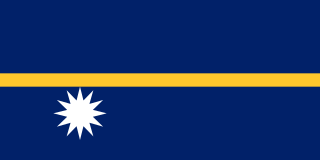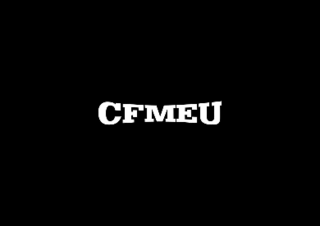Related Research Articles

The Territory of Christmas Island is an Australian external territory in the Indian Ocean comprising the island of the same name. It is located approximately 350 kilometres south of Java and Sumatra and about 1,550 km (840 nmi) north-west of the closest point on the Australian mainland. It has an area of 135 square kilometres (52 sq mi).

Nauru, officially the Republic of Nauru and formerly known as Pleasant Island, is an island country and microstate in Micronesia, part of Oceania in the Central Pacific. Its nearest neighbour is Banaba of Kiribati, about 300 km (190 mi) to the east.

The history of human activity in Nauru, an island country in the Pacific Ocean, began roughly 3,000 years ago when clans settled the island.

The Communist Party of New Zealand (CPNZ) was a communist party in New Zealand which existed from 1921 to 1994. Although spurred to life by events in Soviet Russia in the aftermath of World War I, the party had roots in pre-existing revolutionary socialist and syndicalist organisations, including in particular the independent Wellington Socialist Party, supporters of the Industrial Workers of the World in the Auckland region, and a network of impossiblist study groups of miners on the west coast of the South Island.

Arthur Charles Hamilton-Gordon, 1st Baron Stanmore was a Scottish Liberal Party politician and colonial administrator. He had extensive contact with Prime Minister William Ewart Gladstone.
The Australian labour movement began in the early 19th century and since the late 19th century has included industrial and political wings. Trade unions in Australia may be organised on the basis of craft unionism, general unionism, or industrial unionism. Almost all unions in Australia are affiliated with the Australian Council of Trade Unions (ACTU), many of which have undergone a significant process of amalgamations, especially in the late 1980s and early 1990s. The leadership and membership of unions hold and have at other times held a wide range of political views, including socialist, democratic and right-wing views.
The Australian Workers' Union (AWU) is one of Australia's largest and oldest trade unions. It traces its origins to unions founded in the pastoral and mining industries in the late 1880s and it currently has approximately 80,000 members. It has exercised an outsized influence on the Australian Trade Union movement and on the Australian Labor Party throughout its history.

The Maritime Union of Australia (MUA) was a union which covered waterside workers, seafarers, port workers, professional divers, and office workers associated with Australian ports. The MUA was formed in 1993 with merger of the Seamen's Union of Australia and the Waterside Workers' Federation of Australia.

The Construction, Forestry and Maritime Employees Union (CFMEU) is the largest union in construction, forestry, maritime, textile, clothing and footwear production. The CFMEU is affiliated with the Australian Council of Trade Unions and the Australian Labor Party.
Rabi is a volcanic island in northern Fiji. It is an outlier to Taveuni, in the Vanua Levu Group. It covers an area of 66.3 square kilometers, reaching a maximum elevation of 463 meters and has a shoreline of 46.2 kilometers. With a population of around 5,000, Rabi is home to the Banabans who are the indigenous landowners of Ocean Island; the indigenous Fijian community that formerly lived on Rabi was moved to Taveuni after the island was purchased by the British government. The original inhabitants still maintain their links to the island, and still use the Rabi name in national competitions.
The Miners' Federation of Great Britain (MFGB) was established after a meeting of local mining trade unions in Newport, Wales in 1888. The federation was formed to represent and co-ordinate the affairs of local and regional miners' unions in England, Scotland and Wales whose associations remained largely autonomous. At its peak, the federation represented nearly one million workers. It was reorganised into the National Union of Mineworkers in 1945.

Sir Albert Fuller Ellis was an Australian prospector in the Pacific. He discovered phosphate deposits on the Pacific islands of Nauru and Banaba in 1900. He was the British Phosphate Commissioner for New Zealand from 1921 to 1951.
The British Phosphate Commissioners (BPC) was a board of Australian, British, and New Zealand representatives who managed extraction of phosphate from Christmas Island, Nauru, and Banaba from 1920 until 1981.

North West Point Immigration Detention Centre, formerly Christmas Island Immigration Reception and Processing Centre is an Australian immigration detention facility located on Christmas Island in the Indian Ocean.

The Japanese occupation of Nauru was the period of three years during which Nauru, a Pacific island which at that time was under Australian administration, was occupied by the Japanese military as part of its operations in the Pacific War during World War II. With the onset of the war, the islands that flanked Japan's South Seas possessions became of vital concern to Japanese Imperial General Headquarters, and in particular to the Imperial Navy, which was tasked with protecting Japan's outlying Pacific territories.

The Workers and Socialist Party (WASP) is a Marxist and Trotskyist political party in South Africa affiliated to International Socialist Alternative.
Lillian Oh was the president of the Christmas Island Shire Council between 1993 and 1995.
The 1948 Nauru riots occurred when Chinese labourers employed on the phosphate mines refused to leave the island. At the time, Nauru was dominated by Australia as a United Nations trust territory, with New Zealand and the UK as co-trustees.
The Mining and Energy Union (MEU) is Australia's main trade union in the coal industry including mines, power stations and ports. It also covers workers in the metalliferous mining and exploration industries, as well as specific classes of workers working in the oil, gas, nuclear chemical production and power generation industries. The MEU is affiliated with the Australian Council of Trade Unions (ACTU) and the Australian Labor Party (ALP).
Kaye Bernard is an activist known for her work as a refugee advocate and labor leader on Australia's Christmas Island. She served as general secretary of the Union of Christmas Island Workers from 2010 to 2012.
References
- ↑ "Membership size of registered organisations – 2023" (PDF). Fair Work Commission. Retrieved 16 September 2023.
- ↑ Mark Dapin (1 November 2008). Strange Country. Pan Macmillan Australia. pp. 86–. ISBN 978-1-74262-368-9.
- ↑ "When Christmas Island Workers United Against Colonialism and Apartheid".
- ↑ "Public Works Committee- Approval of Work". Hansard. Parliament of Australia. Retrieved 24 November 2017.
- ↑ Needham, Kirsty (3 September 2011). "Island detention centre operator blasted by union". The Sydney Morning Herald. Retrieved 25 April 2024.
- ↑ Bernstein, Nina (28 September 2011). "Companies Use Immigration Crackdown to Turn a Profit". The New York Times. Retrieved 25 April 2024.
- ↑ "Union of Christmas Island Workers Financial Report 2022" (PDF). Fair Work Commission. 15 June 2023. Retrieved 25 April 2024.
- ICTUR; et al., eds. (2005). Trade Unions of the World (6th ed.). London, UK: John Harper Publishing. ISBN 0-9543811-5-7.